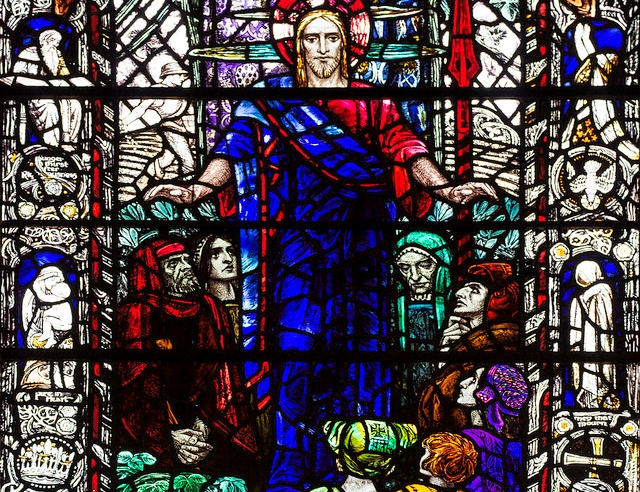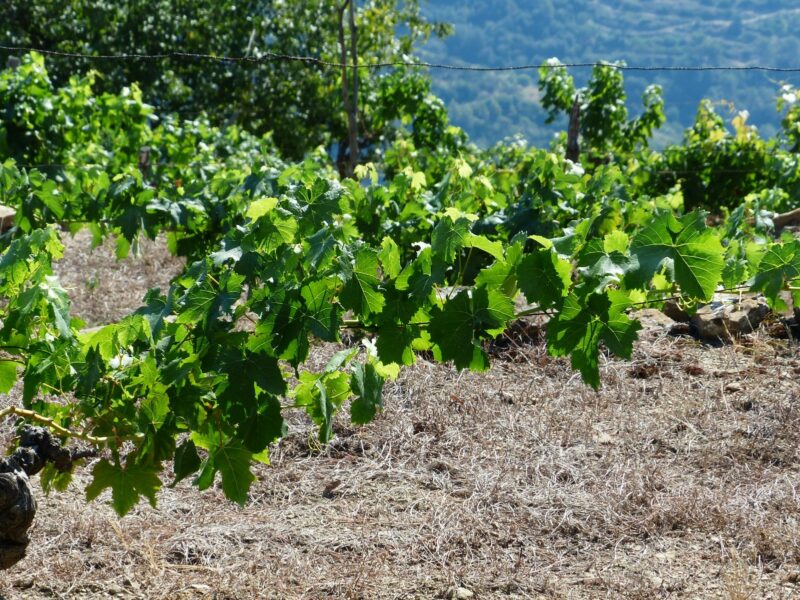
Something to Celebrate
Eleventh Sunday of the Year. fr Robert Ombres reflects on the nature of sin and how it is to be understood in the light of the redeeming work of Jesus Christ.
Unless you believe in God, and specifically in the saving work of Jesus Christ, then talk of sin must remain a weak metaphor, probably part of the inherited language of Christianity and a fading echo at that. As when someone in anger, but with little understanding of what is involved , can burst out, ‘Go to hell’. Let me explain.
By being human, we do have an understanding of wrongdoing, of mistakes and failures, of what can be described as bad or even evil. Our consciences are never completely blunted or deadened. But sin we do not really understand naturally. The closer this understanding comes to belief in God, then the closer it comes to an understanding of sin. Sin is the conscious rejection of friendship with God. It is a break in what was intended to be, and which in Christ is being restored, and already celebrated by those in heaven. Sin is the shadow cast by the light of God when it meets an obstacle, something deliberately put in its way.
Of course, as Christian believers our understanding of sin – of what there is to be understood about it – is not a primary interest. And sin remains essentially incoherent and not fully intelligible anyway. Many of our painful ‘why does this happen?’ questions will remain without answer because complete sense and meaning cannot come from evil and sin. Our chief interest is in the goodness that is thwarted or destroyed by sin, because it is in the nature of sin to be harmfully parasitic on goodness. This human involvement in sin is deep. It goes back to our origins (we speak of ‘original sin’), as well as taking a uniquely personal expression in each of us.
So the woman in today’s unforgettable gospel account by St Luke is chiefly concerned with celebrating lavishly the forgiveness of sin to be found in Christ. Both the pharisee and Jesus agree that she has sinned, and she is only too relieved about what has changed for her. In front of God, we do not start from a position of strength and self-sufficiency. Something Herbert McCabe OP once preached comes to mind – the gospel is not about being good, it is about being rescued. It is not about being safe, it is about being saved.
Reflection on our human condition and on our own personal lives shows that we start and continue in need of God’s loving forgiveness. We are also, in different ways, to become ministers of forgiveness to others. So important is forgiveness that God has made it a sacrament for us, separate from the sacrament of baptism which fundamentally renews our sinful human condition once and for all. While baptism cannot be repeated, the sacrament of penance needs to be.
We still talk about ‘administering’ the sacraments, with its overtones of bureaucratic management and the measured distribution of benefits. The unforgettable extravagance and lavishness of today’s gospel is a corrective to this, uncovering the heart of God and of our response. We are invited to think of the celebration of sacraments, rather than just their administration.
We would be deluding ourselves if we thought that we can be rescued from sin by pretending it does not matter. To trivialise sin is to belittle the wonder of what God has done and does to save us from it.
It is to begin to think that it could be part of our natural evolution as a species to get morally better and better, to progress by means of our own innate possibilities. We might develop beyond good and evil. What is going on, however, might best be seen as yet another tussle with the temptation to presumption and the temptation to despair. If presumption attracts us, then realism about there being no ultimate guarantee of salvation is needed. If despair begins to creep up, we need to rejoice in what baptism has brought about in us, and how the sacrament of confession restores a lost friendship.
Readings: 2 Samuel 12:7-10,13 | Galatians 2:16,19-21 | Luke 7:36-8:3
The image above is from the Church of SS Andrew and George in Edinburgh.
Sorry, the comment form is closed at this time.



A Website Visitor
Great to read your homily. Please God you will come and visit us one day at Wass, N. Yorks. Regards, Sr Raphael
A Website Visitor
An all-embracing non-intellectual experience of forgiving & unconditional love happened during a blessing at the sacrament of marriage 14yrs ago. At that moment I wasn’t a Catholic but it was a full Catholic mass for my future husband’s wishes. My understanding from that incredible experience is that forgiving happens through us, not by us ,and we allow this forgiving to happen both towards ourselves and others.
A Website Visitor
GREAT homily! “Sin is the conscious rejection of friendship with God.” Simple, understandable beginning that is developed in a friendly manner that the folks listening in the pews can take to heart… And then home. I’ll be adding some ideas found in your homily to my own this weekend. Thanks for the inspiration. God bless. Fr Greg
A Website Visitor
Excellent homily- I like the metaphor of sin being the shadow cast by the light of God when it meets an obstacle